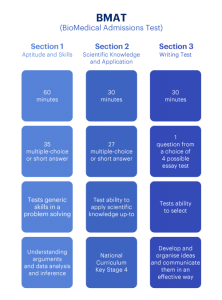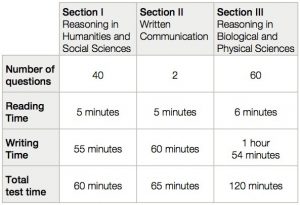As one of the most sorted profession’s in the world, medical school is a popular choice for many students considering both undergraduate and graduate studies. It is one of the most researched areas of study when it comes to medical school rankings and degrees.
Costs
One of the primary concerns is the cost of a medical degree in the UK. Higher education in the UK is hands down one of the most valued. However, the costs are high. Especially if we talk about the medical degree it will cost you a lot. Medical studies have the highest tuition fees in the UK’s higher education.
However, the quality education compensates for the expensive tuition fee. Since medical courses are of longer duration, hence the added expense. The average tuition fee for home students is £9250, as for international students the tuition fee is higher. This tuition fee varies from year to year and university to university. Each year institutions apply varied tuition fees depending on the year you are in. The reason behind this is that after 2 years, there are added clinical and laboratory courses. Therefore, universities require extra money to maintain that equipment.
If you are an international student, you must have at least £10,000 to start off with. Some medical programs can cost you up to £50,000 per year. Reminding that a medical degree takes 5 to 6 years to finish off. However, the tuition fees for medical colleges differ a lot, so the best option is to personally check the university website or contact them.
Duration
The stretch of a medical degree program in the UK varies with respect to the specific field you are enrolled in. Most programs last for 6 years, while dentistry and pharmacy require 5 years of education.
If you are not prepared to sit in for the competition exam, you can easily attend a one-year medical foundation course. When this course is added to your program your degree will automatically shift to a 6-year program.
In the UK, completing your medical degree isn’t the last step to become a recognized doctor. After completing your degree, you have to take a 2-year foundation course. And move towards specialization and general practice to finally be designated as a doctor. Becoming a specialized doctor is a more or less a 10-year long agenda.
Application process
The merit for medical schools in the UK is very high, institutions are very crude and selective during the application and admission process. To secure a seat on one of the best medical schools, you need to have an excellent academic background in medical-related subjects.
If you haven’t studied any medical-related subjects previously, there is still a chance for you to study medicine. In this case scenario, one has to take a long preparatory course before the start of the regular course.
The discussion on the entry requirements has been done previously. Link attached below.
Coming towards the admissions test, medical schools may ask you to provide one of the following tests
UCAT

Approximately 25% of the medical school in the UK require this test from their applicants. You need to sit for this test before you apply through UCAS.
BMAT

You are required to register for this test prior to your application, however, you may sit in the exam on a later date i.e. November
GAMSAT

This test is required by graduate entry medicine and some standard entry medicine courses. You are also supposed to take this test before starting your online application.
Stages
Your journey to become a doctor is divided into 4 different stages.
Standard entry medicine
The standard entry medicine program is equivalent to an undergraduate degree or a bachelor’s degree. It takes 5 to 6 years to complete this course. This degree is also known as MBBS
Graduate entry medicine
This course is for students who already have a bachelor’s degree, not necessarily has to be a science-related subject. It’s a fast-paced 4-year program, but in some universities, it lasts for 5 years.
Medicine with Preliminary year
This course is for students who are high achievers in A ‘levels but lack in particular science subjects. This course is one-year long. It can be offered both at the start of MBBS or separately.
Medicine with a Gateway year
This program is designed for students who show substantial skills and abilities in medicine but were restricted due to certain circumstances. In this case scenario, universities ease the entry process for the student.
An example of this can be ‘Adjusted Criteria’, lowering the requirements so that the applicant can meet the eligibility criteria.
List of the best UK medical schools
In this new age of development and research medicine has explored a large number of study areas within the field of medicine. Universities in the UK have kept on with these changes and introduced diversified study programs.
There is plenty of fish in the ocean, you can choose from the wide range of subject areas and schools and take admission in.
University of Cambridge

The Clinical medicine school in Cambridge is the best in the UK. It masters in leadership, education, research, and healthcare. This school offers programs both for undergrad and graduate levels.
Cambridge school of clinical medicine seeks to change the practice of medicine and improve the understanding of a wide range of clinical specialties and disciplines. Some of the areas of research are cancer, cardio-respiratory medicine, cellular mechanisms of disease, diabetes, endocrinology, and metabolism, and many more.
University of Oxford

Oxford is one of the oldest British university and also one of the best ones. Their division of disciplines in medicine has a lot more to offer in terms of programs and career pathways.
For admission, students need to sit for BMAT. In the last 3 years, the success rate for admissions was 9%. Being one of the prestigious institutions of Britain, the merit for admission is quite high. One needs to have an excellent academic record in relevant subjects and do extremely well in the admission test and interview.
The medical school at oxford provides an all-rounder intellectual training with a strong basis in basic research. It offers a 3-year pre-clinical stage that includes studying towards a BA honors degree in medical sciences, followed by a 3-year clinical stage.
The medical school of oxford is small and closely knitted, allowing students and staff to get to know one another and benefit from this interactive environment.
Imperial College London

Imperial college school of medicine is one of the largest schools in the UK. As per now, it is training more than 2000 students in medicine and biomedical science. The wide range of programs are being offered at 4 different campuses, as well as at a number of partner hospitals.
Imperial school of medicine is a global leader in biomedical research that has made a groundbreaking impact on societies all over the world. It accommodates more than 1400 of academic and research staff, with research funding in excess of £170M per year.
University of Edinburgh

Edinburgh has two schools, the college of medicine and veterinary medicine. Both are internationally renowned for both our teaching and research. The school is divided into 3 deaneries; biomedical sciences, clinical sciences, and molecular, genetic, and population health sciences.
In addition to these schools, Edinburgh hosts several funded centers that focus on specific disease areas. Undergraduate courses include Medicine (MBChB), MBChB for healthcare professionals, and Medical Sciences BSc (Hons), whereas postgraduate courses include Animal Biosciences, Applied Animal Behavior, and Welfare, human anatomy, oral surgery, orthodontics, Pediatric Dentistry, Prosthodontics, Public health.
Kings College London

The medical school of king’s college provides a blend of theory and practice. At the end of your degree, you are fully prepared to carry out the responsibility of being a doctor. The integration of medical science with clinical teaching helps you focus on learning in close contact with patients.
Kings have partnered with top teaching hospitals in London, which benefits the students. Students also benefit from clinical placements at district general hospitals. At kings, you get the opportunity of learning from a few of the world’s most influential clinicians and scientists, who are global leaders in medicine and research.
University of Manchester

Medicine school of Manchester is delivering medical education for 145 years. Despite being the largest medical school in the UK they have the smallest class sizes for first-years to ensure you get the right learning and support needed for you to excel throughout your degree. These small size classrooms enable the faculty members to use a wide range of methods to incorporate the learnings rightly. This also helps in hands-on practical training.
MBChB, MBChB with a foundation year, and intercalated courses for medical students are offered at the undergrad level at Manchester. Specialists and medical research courses are offered at the postgraduate level. Courses for NHS scientists are also offered.
University of Dundee

There are 2 degrees that are offered at the undergrad level at Dundee, MBChB, and BMSC intercalated degree. In addition to this Dundee have a portfolio of internationally recognized researchers, clinicians, and educators.
At Dundee, there is a broad range of Ph.D. opportunities. Dundee owns an outstanding reputation for teaching and is ranked on number 6 in the UK for a medicine according to the complete university Guide 2019. More than 500 scientists and clinicians work at the research and training center of Dundee, they work in collaboration with NHS and both the local and global community.
The school of medicine is divided into five divisions. The research is planned thematically across divisions and schools in order to strengthen inter-disciplinary partnerships.

